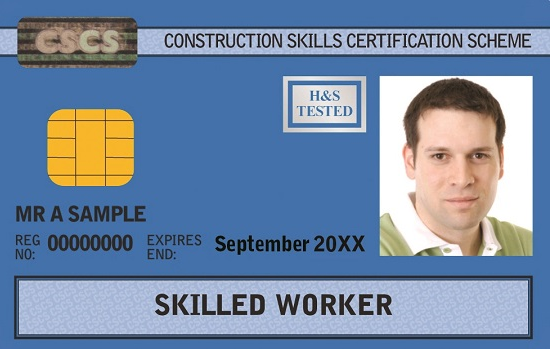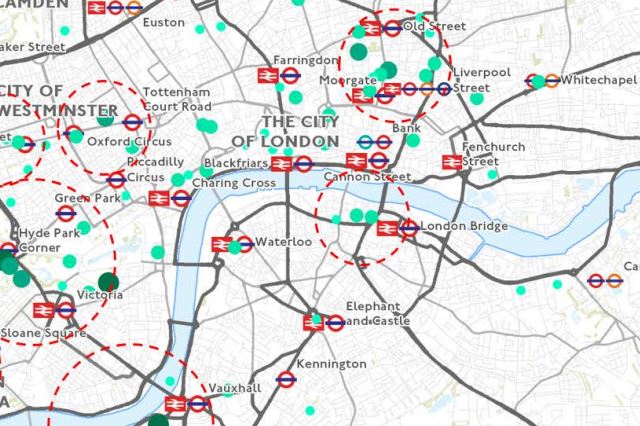
How to manage expired CSCS cards in a Lockdown
Update 22.1.2021
HS&E Tests
There have been updates to the provision of HS&E Testing across all three nations. Testing remains in place in England and has resumed again in Wales, but in Scotland, updated government guidance has meant Pearson VUE have ceased delivery of testing. Ensure you check CITB’s Urgent Messages page for the latest information before trying to book. Or check the Pearson- VUE web site and look at country-specific testing information https://home.pearsonvue.com/coronavirus-update
Pearson Vue have are regularly updating their Country-specific testing information with details of what is happening in each country. The latest information includes this statement: You must bring and wear your own face mask while at a Pearson VUE-owned test centre and throughout your exam. Any surgical or cloth face mask, including a homemade face mask, is acceptable as long as your nose and mouth are fully covered. Face masks with exhalation valves and face shields are not acceptable. Candidates without a face mask will be denied testing services. Pearson Vue are unable to provide face masks to candidates.
Candidates are encouraged to check your test confirmation email or letter for details of safety measures at the Test Centre including the requirement to wear face coverings, or for any changes to your scheduled appointment. Limited capacity may cause delays in booking a test.
Visit CITB’s urgent messages page for further information on test centre availability across the whole of the UK. CITB are working alongside their partners to increase the testing capacity, so please continue to visit the CITB website to check for availability and to book your test.
COVID – 19 Position CSCS
A key requirement for all applications (new or renewal) is proof that the applicant has passed the relevant CITB Health, safety and environment (HS&E) test within the last 2 years. Based on COVID-19 issues CSCS is requesting employers and those responsible for site access and card checking procedures to use their discretion towards workers whose cards have expired since mid-March onward and who can provide evidence that they have been unable to sit their test or undertake the required training as a result of the closure of Test and Training centres. This is at the employer’s discretion until the situation has stabilised.
What steps are CSCS taking?
CSCS recognise that construction workers may face delays in obtaining a card while test centres cannot run at full capacity or are required to close. Therefore, they are asking the industry to continue to support the following temporary measures:
- Employers and those responsible for site access and card checking procedures to use their discretion towards workers whose cards have expired since March onward. But a worker must always hold the correct card for the job they do on site.
- CSCS has extended the grace period for card renewals from 6 months after the card expires to 12 months. This means that the card can be renewed, once the CITB HS&E test has been passed, up to one year from the card’s expiry date. This will assist those applicants struggling to find availability to sit the test and renew their card.
CSCS will continue to monitor the situation and where necessary introduce further proactive measures to limit the impact on CSCS applicants and the wider industry. You can visit www.cscs.uk.com/covid19 for the latest updates from CSCS.
What to do if your card has been expired for more than a year
“Lite Health and Safety Test”
Where it is not currently possible for individuals to renew their CSCS Cards or take the H&S Test. CITB has initiated a ‘lite’ Health and Safety test as a temporary measure, so employers can assess the health and safety knowledge of individuals.
Note this is an interim and only to be used where testing capacity is limited. It is designed to help employers run their own in-house interim testing to give a level of local assurance that an employee is safe to work on their site. Permission to allow the employee on site is at the discretion of the employer. Suggested test delivery guidelines are available to download here.
This product is free to download from the following sources:
CITB: LITE Operatives and Specialist HS&E TEST only
- Apple iOs version (External link – Opens in a new tab or window)
- Android version (External link – Opens in a new tab or window)
- PC download version (External link – Opens in a new tab or window)
CITB: LITE Managers and Professionals HS&E TEST only
- Apple iOs version (External link – Opens in a new tab or window)
- Android version (External link – Opens in a new tab or window)
- PC download version (External link – Opens in a new tab or window)
Further Information
CSCS for information on card registrations and renewals and more detail on the H&S Test click here.
The easiest way to apply for a CSCS card is online: https://www.cscs.uk.com/applying-for-cards/ or download the App MyCSCS (in Android or iOs)
More information is available online from CITB on CSCS Tests is available here.
Important test delivery information pertaining to COVID-19 (coronavirus) (note the section for various parts of the UK, construction is deemed as essential, so testing should carry on, but check the status for your local test centre to ensure there are no local issues).
Further information from CSCS is shown here.
To visit the FIS COVID-19 Hub Click here





